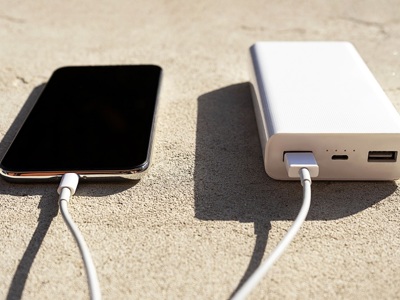
Cobalt mining in the Democratic Republic of Congo: Where next?
Liberty Bridge and Hollie Brett, from our international and group litigation department, discuss the widespread abuse and exploitation in cobalt mining, and the recent US legal case trying to hold the big tech companies using the cobalt to account
Posted on 22 June 2023
Cobalt is a crucial component of rechargeable batteries that can be found in most electronic devices including laptops, phones and electric cars. It is a chemical element that is mined across the globe, but predominantly in the Democratic Republic of Congo (DRC).
Cobalt mining usually involves manually digging networks of deep tunnels that ‘artisanal miners’ (individuals that are not formally employed and usually dig by hand or using small tools) descend using makeshift shafts to extract rocks containing the precious metal. Cobalt has been described as the ‘blood diamond of batteries’, due to the devastating impact that cobalt mining has on human rights and the environment.
Exploitation of Congolese people in cobalt mining
The DRC is one of five of the most impoverished nations globally. Over 60% of Congolese nationals live on less than £1.75 per day. Yet, the DRC is also one of the most mineral rich countries in the world. In 2020, it was estimated that 70% of the world’s cobalt was mined in the DRC and used in products manufactured by some of the world’s richest companies. Despite this, miners earn as little as 30p per hour. This often results in families having no choice but to take their children to the mines to make enough money to survive. It is estimated that as many as 40,000 children work within cobalt mines in the DRC. Debt-bondage, which involves forced labour with little to no monetary compensation as repayment for a debt, is common practice.
Miners are also exposed to extremely hazardous working conditions as a result of a lack of protective wear and a general absence of safety protocols within large-scale mines. Siddharth Kara, an author and expert on modern slavery, has conducted extensive research into the links between big tech and the exploitation of Congolese people through cobalt mining.
In his most recent book, Cobalt Red, Siddharth Kara described a culture of violence within the mines including physical and sexual assaults on women and children. He further explained that pregnant women often have no choice but to continue mining, exposing themselves to toxic chemicals. Women living across the mining region of the DRC are at a significantly higher risk of having children born with birth defects. Tunnels often collapse causing life-changing injuries and deaths that go largely unreported.
Holding the tech giants to account - Doe v Apple
In December 2019, a landmark case was launched against several of the world’s largest tech companies, including Apple, Microsoft, and Tesla, by the families of Congolese children that were maimed or killed whilst mining for cobalt in the DRC. Cobalt is a crucial component of many of the products that these companies manufacture and sell. The federal class action was filed in Washington DC by International Rights Advocates (IR Advocates) on behalf of 14 families.
The Plaintiffs sought compensation for forced labour, unjust enrichment, negligence, and the intentional infliction of emotional distress. The case centred around child labour in contravention of the US Trafficking Victims Protection Reauthorization Act (TVPRA). This case was brought in the US for several reasons, including because the Plaintiffs lack access to justice in the DRC, but also because this lawsuit involves US companies that utilise cobalt throughout their products.
However, the claim was dismissed in November 2021. The Court found that there was not a strong enough causal relationship between the tech companies’ conduct and the injuries or deaths of the Plaintiffs. This is in spite of the fact that the companies in question claim that they implement policies to prevent child labour within their supply chains and to promote safe working conditions. This dismissal also raised questions as to the scope of the TVPRA and importantly, whether it has extraterritorial application.
This decision was appealed, and in December 2022, the Federal Court of Appeals for the District of Columbia Circuit heard oral arguments. Several points were raised by the Plaintiffs including the argument that there was a continuous business relationship between the Defendants and the mines that included the inspection of mines and the implementation of company procedures that claimed to promote ethical working conditions. The judgment is pending and is expected shortly.
Why is the Doe v Apple case important?
If the Plaintiffs’ appeal in Doe v Apple is successful then it would set an important precedent as to the onus placed on ‘big tech’ to prevent forced labour, child labour and hazardous working conditions within their supply chains. It would encourage some of the world’s most powerful companies to take accountability for the exploitation that is rife within cobalt mining. It would also undoubtedly result in huge benefits for miners in the DRC as it could lead to increased pay, safer working conditions and the potential reduction of child labour.
This is especially important following discussions at COP26 relating to the transition to electric vehicles and the UK’s ban on the sale of new petrol and diesel cars from 2030. These discussions and decisions will inevitably support the increase in the manufacture and sale of electric cars. Cobalt is a key component of electric vehicles and with demand for cobalt therefore growing with the increase in the sale of electric vehicles, this could result in even more Congolese nationals resorting to artisanal mining work where exploitation is rife.




